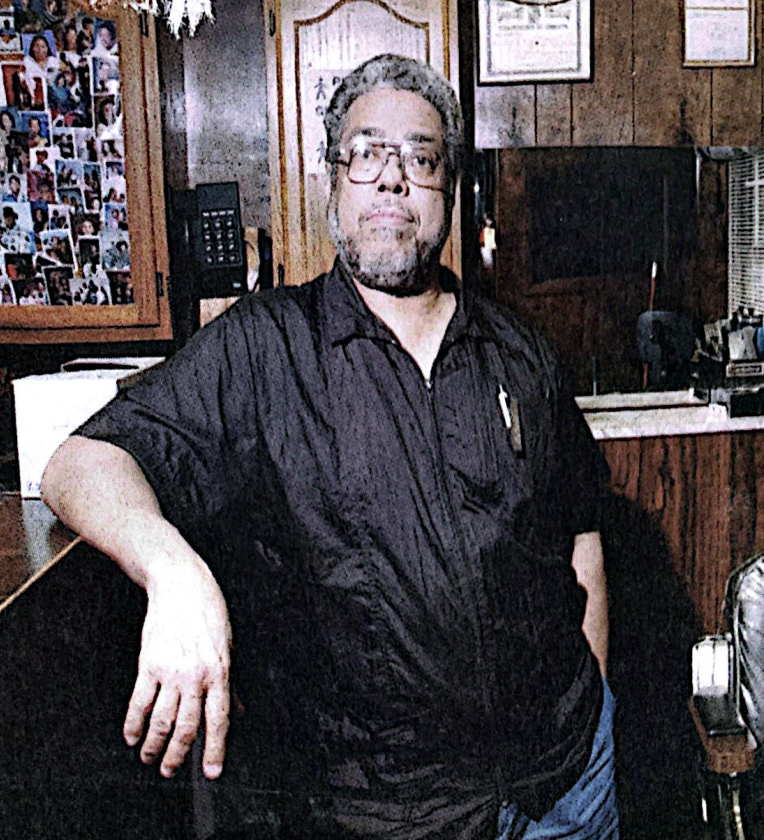William Tate
Birth: 1834 in Greensboro, Guilford County, North Carolina
Died: May 29, 1904, in Richmond, Indiana Early Life: William was born into slavery, but in 1864, he escaped to Indiana.
Career as a Barber: He owned a very successful barber shop at 1013 Main Street, which many prominent businessmen and manufacturers patronized.

Calvin Outland
Barber/Abolitionist
Birth: May 1812, in Raleigh, North Carolina
Died: July 14, 1901, in Richmond, Indiana
Early Life: Calvin was born into slavery, but in 1829, he escaped to Dover, Indiana, with a group of Quakers. Then, at 20, he moved to Richmond, Indiana.
Career as a Barber: John G. Brittain, who had opened and owned the first barbershop in Richmond, sold the shop to Calvin. Calvin was said to have excelled at cutting hair.
Abolitionist Work: Calvin was a conductor of the Underground Railroad, helping escaped enslaved people make it to the North. Many people spent the night at his North Third Street home across from the Wayne County Courthouse. Calvin was also friends with prominent abolitionist Frederick Douglass and frequently visited Richmond.

Andrew Wright Sr.
Birth: March 16, 1910, in Centerville, Tennessee
Death: November 6, 1976 in Richmond, Indiana
Career as a Barber: In 1945, Andrew Wright Sr. moved to Richmond, Indiana, and quickly became interested in community improvement. He opened Wright’s Barber Shop (located at 1131 N. J Street) in 1959, and many apprentice barbers studied under him. Community Engagement: He was active in local politics, serving on the mayor’s advisory committee. He was a Townsend Community Center board member and a trustee of the Original Church of God (located on North 14th Street).

Andrew “Billy” Wright Jr.
Birth: October 3, 1936 in Centerville, Tennessee.
Death: December 8, 2015, in Richmond, Indiana.
Education: Graduated from Richmond Sr. High School in 1956 and attended Poro Barber College in Indianapolis, IN.
Career as a Barber: His father opened Wright’s Barber Shop (located at 1131 N. J Street) in 1959. In 1976, Jr. took over the family business, and the shop became an important place in the community for people to talk with one another.
Leave a Reply